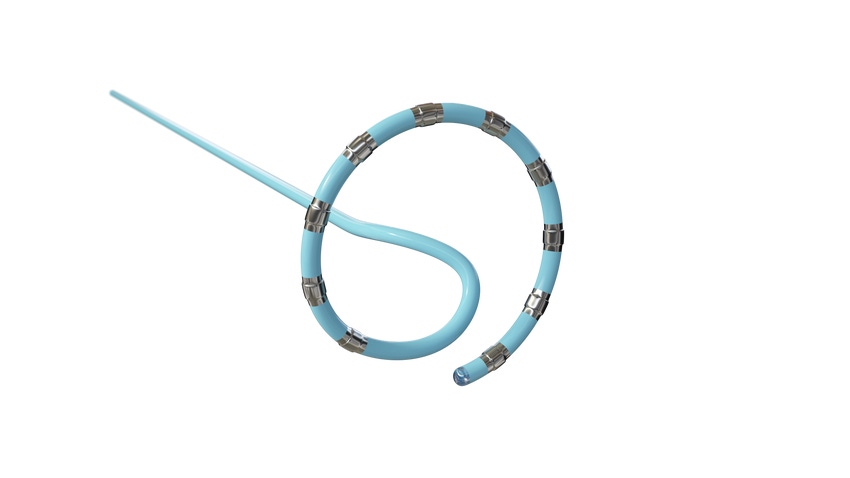J&J Unveils Promising Varipulse Results Amidst Shift in PFA Landscape
With approvals of devices from Boston Scientific and Medtronic in the past three months, Johnson & Johnson MedTech’s Varipulse data continues to drive interest in the pulsed-field ablation market.
February 6, 2024

At a Glance
- The PFA market has seen a notable shift with both Medtronic and Boston Scientific winning approval for devices in the space.
- The study showcased an 80% freedom from atrial arrhythmia recurrence at 12 months in patients with optimal PFA applications.
- Analysts highlight the potential benefits of PFA, including ease of procedure and potential cost considerations.
The pulsed-field ablation landscape has experienced a significant shift in the past three months. Medtronic and Boston Scientific now have devices on the market.
But where does that leave the third player in the space – Johnson & Johnson MedTech?
On Monday, the New Brunswick, NJ-based company’s Biosense Webster unit revealed promising final results of the Varipulse PFA system from the inspIRE study at the 29th Annual International AF Symposium. Results show that 80% freedom from atrial arrhythmia recurrence at 12 months in patients with optimal PFA applications.
In the study, the primary effectiveness endpoint of acute pulmonary vein isolation and 12-month freedom from atrial arrhythmia recurrence (AFib, Atrial Tachycardia, or Atrial Flutter) was 75.6%. The study reported a low fluoroscopy time of 7.8 minutes, partly attributed to the integration of the Varipulse Platform into the CARTO 3 System. The safety results demonstrated a primary adverse event rate of 0%.
“High efficacy of 80% freedom from atrial recurrence at 12 months and a strong safety profile are promising evidence of the capabilities of the Varipulse Platform,” said Vivek Reddy, MD, Director of Electrophysiology at the Mount Sinai Fuster Heart Hospital and The Helmsley Trust Professor of Cardiac Electrophysiology at the Icahn School of Medicine at Mount Sinai, corresponding author for the inspIRE study publication. “As the Varipulse Platform was designed to integrate seamlessly with the Carto 3 Mapping System, this technology should be able to effectively treat patients with atrial fibrillation with low radiation exposure to patients and lab staff alike.”
Marie Thibault, an analyst with BTIG, discussed what the results from the study might mean when compared to other device studies in the space.
“This is higher than we and likely most key opinion leaders expected but is not exactly apples-to-apples since the patients were a bit younger and had a slightly lower risk of stroke than [Boston Scientific’s] ADVENT [study] and [Medtronic’s] PULSED AF [study],” Thibault wrote. “Modeling the trial results against real-world monitoring standards yielded 85.8% efficacy, above that from Farapulse's MANIFEST-PF and EU-PORIA real-world data sets.”
Landmark Approvals Set Tone for PFA Market
Medtronic won approval for the PulseSelect PFA system late last year. Boston Scientific followed – garnering approval for the Farapulse PFA last month.
Both approvals have drawn attention to one of the hottest markets in the medical device industry.
Thibault gave insight on the significance of PFAs offering up the latest talking points from thought leaders in the space.
“PFA is fast, but speed isn't the biggest benefit, its ability to make the procedure easier and level the playing field is,” Thibault wrote. “Ablation time has never been the bottleneck, room turnover and anesthesia take the most time. Being able to use sedation instead of general anesthesia (GA) would help with this. In Germany, where deep sedation is the standard of care, there has been no difference in safety events between PFA delivered under GA vs. deep sedation. GA is standard of care today in the U.S.”
Thibault also wrote, “The cost of PFA came up several times, with key opinion leaders reporting that PFA in Europe is costing ~2x more than RF ablation. With EP typically a profit center for hospitals and hospital margins under pressure, this is a concern. These doctors expect pricing to decrease as PFA volume increases. Combining ablation and mapping in one catheter may also be preferred since that is one less catheter to pay for.”
About the Author(s)
You May Also Like



.png?width=300&auto=webp&quality=80&disable=upscale)
